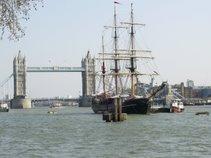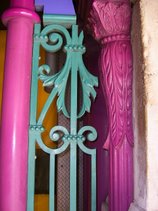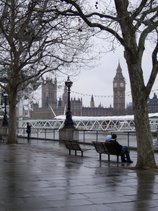However in Britain universal suffrage is inexorably linked with the Pankhurst family, Emmeline and to a lesser extent her daughters Sylvia and Christabel. To see Emmeline Pankhurst’s memorial you have to go to the entrance of The Victoria Tower Gardens, adjacent to the Houses of Parliament.
Emmeline was an active supporter of the campaign for women’s suffrage, but by 1903 she had become disillusioned with the National Union of Women’s Suffrage (NUWSS), led by Millicent Fawcett. She broke from the NUWSS and founded the Women’s Social and Political Union (WSPU). By 1907 Emmeline and her two daughters had formulated WSPU’s tactic of civil disobedience. Women chained themselves to railings, and went on hunger-strikes. The WSPU and NUWSS suspended their campaigns for the period of World War 1, (1914 - 1918).
As a reword for their patriotic support during the War, in 1918 the British Parliament passed the Representation of People Act, giving voting rights to property owning women over 30 years of age.
Emmeline died in 1928, the year women over 21 were given the right to vote - giving women the same voting status as men.
There is a small plaque on the left side of Emmeline’s memorial to commemorate her daughter Christabel. She went to live in the USA in 1921 where she became a prominent member of Second Adventist movement. She died in the USA in 1958.
As for Emmeline’s youngest daughter Sylvia, there is no plaque! She was opposed to the concept of a marriage contract, where the woman took her husbands name. At the end of WW1, Sylvia began living with Silvo Corio, an Italian socialist. In 1927 she had a son. Because she refused to marry the father, her mother Emmeline refused to speak to her again. After WW2 Sylvia went to live in Ethiopia, where she died in 1960. She is buried in front of Trinity Cathedral in Addis Ababa, in an area reserved for patriots of the war against Italy.
Click here to see YesBut’s Image of the day.
















No comments:
Post a Comment